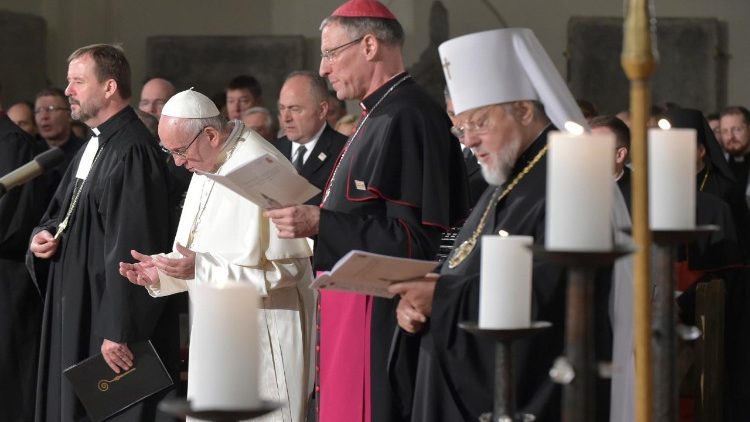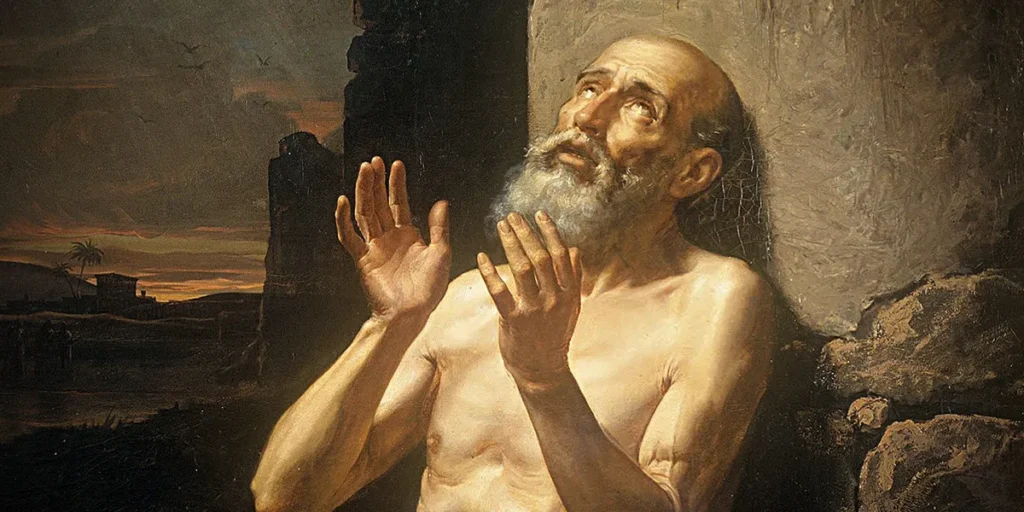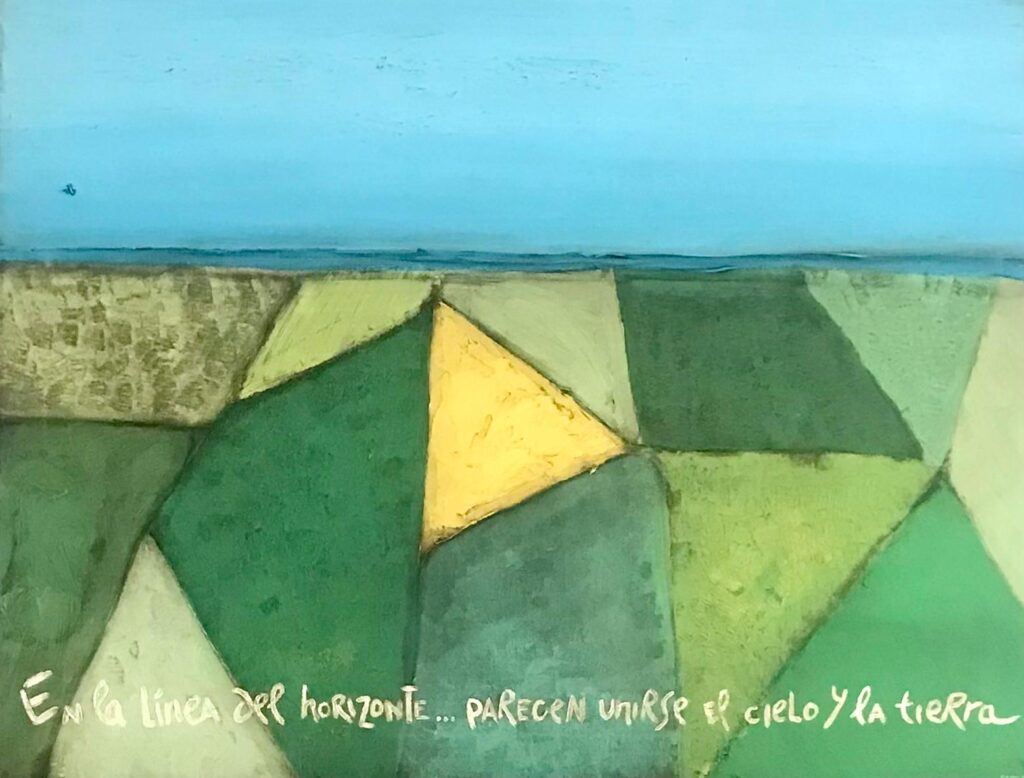Cardinal Arizmendi: Ecumenism is not Relativism
The best way to attract other people to Catholicism is through our own life testimony

Cardinal Felipe Arizmendi, bishop emeritus of San Cristóbal de Las Casas and head of the Doctrine of Faith at the Mexican Episcopal Conference (CEM), offers readers of Exaudi his weekly article entitled “Ecumenism is not Relativism.”
***
LOOK
Some believers have been disconcerted by this phrase that the Pope said at an interreligious meeting with young people in Singapore on September 13, during his recent trip through Asia and Oceania: “All religions are a path to reach God.” Does this mean that all religions are equal, that they are worth the same, and that it no longer matters whether you are Catholic or of any other religion? He expressed This complete sentence: “One of the things that have impressed me most about you, the young people here, is the capacity for inter-religious dialogue. And this is very important, because if you start arguing: “My religion is more important than yours”… “Mine is the true one, but yours is not true” – where does all this lead? Where? Someone should answer: where? [Someone answers: “To destruction”]. That is right. All religions are a path to reach God. And, I make a comparison: they are like different languages, like different languages, to get there. Because God is God for everyone. And because He is God for everyone, we are all children of God. “But my God is more important than yours!” Is that true? There is only one God, and we, our religions are languages, paths to reach God. One is Sikh, another is Muslim, Hindu, Christian; although they are different paths. However, inter-religious dialogue between young people requires courage, courage to move forward and to dialogue. One thing that helps a lot is respect, dialogue”.
Does what the Pope said lead us to religious relativism? Is it the same to be Catholic or not? So, we should not try to get others to be Catholic? The Pope said none of this, but only that we must respect each other among religions and unite for peace and brotherhood, respecting each other, without condemning or excluding each other.
Being in Chiapas, where there are so many non-Catholics, especially Protestants or Evangelicals, and even Muslims, I met many of them who are very good people, very upright in their conduct, good families and good citizens. We never argued about religious issues, except when something needed to be clarified, but without fighting or offending each other. Rather, we joined forces and activities to seek peace and reconciliation in the communities, to give good guidance to young people against alcohol and drugs, to offer families the contribution of our religion and to ensure unity and harmony, to work together for the care of the environment, to organize concerts for peace, etc. All this in an interfaith manner, with much respect and even affection between us. Because of this relationship with brothers of other religions, I never lost my Catholic identity, I never tried to impose my religion, which I obviously consider the best, but I always tried to value the presence and work of God in them. And God is present in their lives and acts in them for the good of the community!
DISCERN
Pope Francis, in his encyclical Fratelli tutti, states: “The Church values the action of God in other religions, and does not reject anything that is holy and true in these religions. It regards with sincere respect those ways of acting and living, those precepts and doctrines which often reflect a ray of that Truth which enlightens all men. Others draw from other sources; for us, this source of human dignity and fraternity is in the Gospel of Jesus Christ. From it springs for Christian thought and for the action of the Church the primacy given to the relationship, to the encounter with the sacred mystery of the other, to universal communion with the whole of humanity as the vocation of all” (277).
Already the Second Vatican Council (1962-65), long before Pope Francis, had said in the Constitution Lumen gentium on the Church: “All men are called to this catholic unity of the People of God, which symbolizes and promotes universal peace, and to it, they belong or are ordered in various ways, whether the Catholic faithful, or other believers in Christ, or also all men in general, called by the grace of God to salvation” (13).
“For many reasons, the Church recognizes that she is united with those who, having been baptized, are honored with the name of Christian, but do not profess the faith in its entirety or do not maintain the unity of communion under the successor of Peter” (15).
“Even God himself is not far from others who seek the unknown God in shadows and images, since all receive life, inspiration, and all things from Him, and the Savior desires that all men be saved. For those who, without fault, are ignorant of the Gospel of Christ and His Church, nevertheless seek God with a sincere heart and, under the influence of grace, strive to fulfill His will, known through the judgment of conscience, by works, can obtain eternal salvation. Nor does Divine Providence deny the necessary aids for salvation to those who, without fault, have not yet arrived at an express knowledge of God and who strive to lead a right life, not without the grace of God. Whatever is good and true among them, the Church judges as a preparation for the Gospel and given by Him who enlightens all men so that they may finally have life” (16).
ACT
If you meet people of another religion, respect them and treat them as brothers. If appropriate, we can discuss the great treasure that is the Catholic faith, but not impose it. The best way to attract other people to Catholicism is through our own life testimony. Religion is not imposed; it is spread by good example. As Pope Benedict XVI insisted, the Church does not grow through proselytism, but through attraction.
Related

Job, the Mystery of Suffering
Francisco Bobadilla
31 March, 2025
6 min

Emilio Girón: Stubbornness and Tinto de Verano
Exaudi Staff
30 March, 2025
5 min

Facing Divorce as a Christian Couple
Laetare
28 March, 2025
2 min

Mars Colonization: Technological Progress or Threat to Human Dignity?
Observatorio de Bioética UCV
28 March, 2025
9 min
 (EN)
(EN)
 (ES)
(ES)
 (IT)
(IT)

